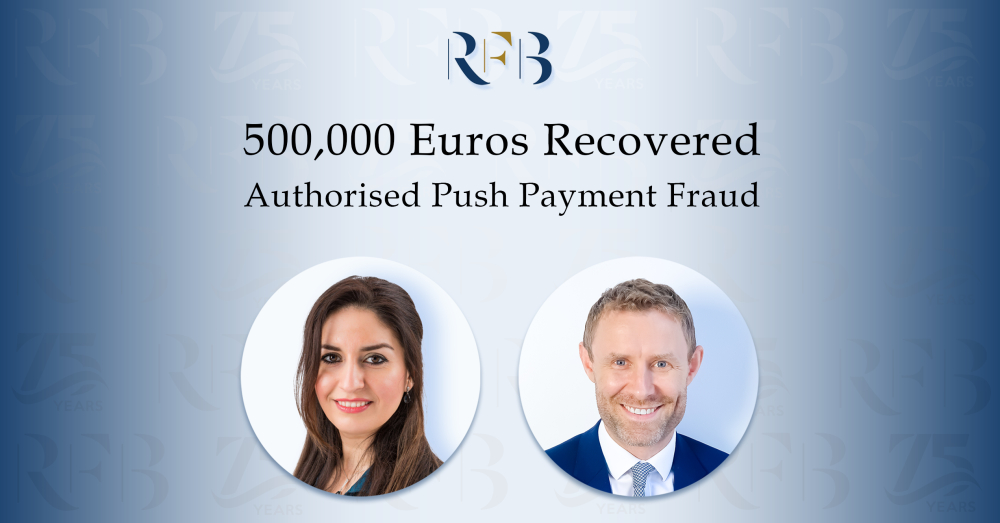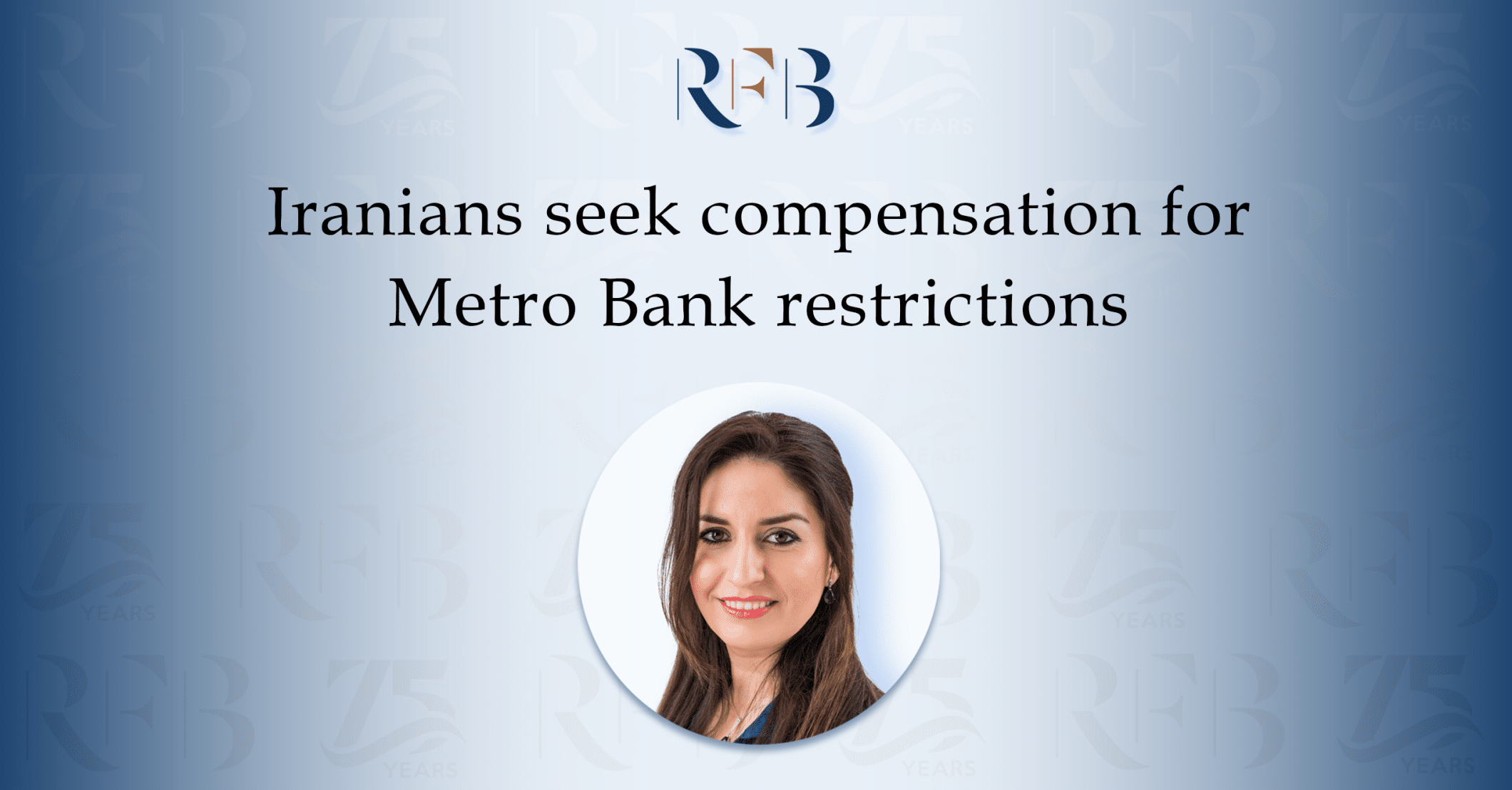What is Authorised Push Payment (APP) Fraud?
Authorised Push Payment (APP) Fraud is one way in which fraudsters obtain funds that do not belong to them, usually through manipulation or deception. To do this, the fraudster often convinces or tricks individuals or businesses into sending funds into a bank account that is controlled by the fraudster. This can be done by providing fake bank statements or hacking emails or telephone calls. Once the funds are in the bank account controlled by the fraudster, the funds are then usually sent into numerous other bank accounts which makes it extremely difficult to recover the funds.
APP losses were £239.3 million last year which included £196.7 million in personal losses and £42.60 million in business losses. It is, therefore, clear that the main target for APPs are individual consumers but established businesses and experienced entrepreneurs are not immune from this type of fraud.
RFB’s Recent Authorised Push Payment Fraud Case
Most recently, Rokhsareh Vahid was instructed and successfully acted on behalf of a client in a case involving an experienced entrepreneur and a transfer in excess of 580,000 euros into a fraudulent bank account.
In this case, our client owed invoices for significant amounts of money to its supplier and was in the process of arranging payment of these invoices. In the midst of arranging the payment, our client received an email with new bank account details from a fake email address that looked almost identical to the supplier’s usual emails. In fact, the only difference in the email addresses was an extra ‘s’ in the domain. The signature line and every other details was exactly the same. The funds were being transferred from a bank in Turkey to a recipient bank in the UK. As our client owed this money and wanted to settle the invoice quickly so that it could place the next order, it proceeded to make payment into the fraudulent bank account. Shortly afterwards, our client became aware of the fraud and instructed Rokhsareh Vahid based on a personal recommendation by a friend.
Rokhsareh took immediate action, to restrict funds being transferred out of the fraudulent bank account. This swift action prevented over 85% of the funds being transferred out of the account. Thereafter, together, with Partner, David Burns, and the litigation team, over 500,000 euros were successfully recovered from the fraudulent bank account and returned to our client.
How to Avoid Authorised Push Payment (APP) Fraud
In order for this type of fraud to occur, the fraudsters need your assistance. They cannot access your funds without you sending the funds out to them. Therefore, it is possible to avoid these losses by being vigilant every time payment is made.
APP scams are an increasing threat in the digital age, but there are some precautions you can take to help protect yourself:
1. Verify the sender’s identity
Be vigilant and be cautious when dealing with any requests for payment of money (in particular when dealing with unfamiliar requests such as unsolicited emails, text messages or phone calls). Do not share sensitive information without confirming the sender’s identity and be sceptical of an unsolicited offers.
It is advisable to confirm bank details directly with sender before you send any funds out of your bank account. It is advisable to confirm bank details by telephone rather than by email or other electronic means.
2. Use secure payment methods
When making payments through banking or payment apps, ensure that the recipient is legitimate and the app is secure. Look for verification of the recipient’s details to avoid sending funds to an account controlled by a fraudster.
3. Never Delay Action and report suspected APP scams immediately
Time is of the essence in these cases. The longer you wait, the more unlikely it is that you will recover your funds. Therefore, if you suspect anything at all, first, report it to your bank and the police, and, contact Rokhsareh Vahid at r.vahid@rfblegal.co.uk. Rokhsareh will consider your matter and use her contacts at various banks to deal with your matter as quickly and effectively as possible.
Disclaimer
The information provided in this article does not, and is not intended to, constitute legal advice; instead, all the information and content in this article is for general informational purposes only. The information on this website is provided without any representations or warranties, express or implied. We make no representations or warranties in relation to the information on this website.










